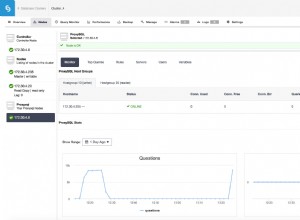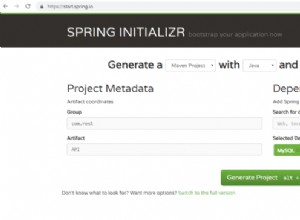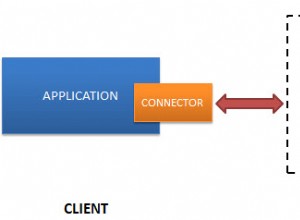Si vous pouvez obtenir le fichier d'entrée livré avec tous les champs entre guillemets (ou pouvez le traduire après lecture ; mon expression régulière n'est pas assez bonne), vous pouvez utiliser dbms_utility.comma_to_table
; les champs doivent être entourés car (comme indiqué ici
) les jetons doivent être des noms d'objet valides, donc 1 provoque une erreur. Par exemple :
declare
file utl_file.file_type;
list varchar2(120);
tablen binary_integer;
tab dbms_utility.lname_array;
begin
file := utl_file.fopen('MY_DIR', 'test1.csv', 'R');
loop
begin
utl_file.get_line(file => file, buffer => list);
exception
when no_data_found then
exit;
end;
dbms_output.put_line('Raw list: ' || list);
dbms_utility.comma_to_table(list => list,
tablen => tablen, tab => tab);
for i in 1..tablen
loop
dbms_output.put_line('Column ' || i || ': '
|| replace(tab(i), '"'));
end loop;
end loop;
utl_file.fclose(file);
end;
/
donne :
Raw list: "1","test","xy, yz","dog","cat"
Column 1: 1
Column 2: test
Column 3: xy, yz
Column 4: dog
Column 5: cat
Raw list: "2","test2","xy","fish","bear"
Column 1: 2
Column 2: test2
Column 3: xy
Column 4: fish
Column 5: bear
Raw list: "3","test3","ab, cd","rabbit, rabbit","duck"
Column 1: 3
Column 2: test3
Column 3: ab, cd
Column 4: rabbit, rabbit
Column 5: duck
S'ils ne sont pas cités, vous pouvez utiliser une expression régulière (modèle de ici ):
declare
file utl_file.file_type;
list varchar2(120);
pattern varchar2(15) := '("[^"]*"|[^,]+)';
c sys_refcursor;
i number;
f varchar2(20);
begin
file := utl_file.fopen('MY_DIR', 'test2.csv', 'R');
loop
begin
utl_file.get_line(file => file, buffer => list);
exception
when no_data_found then
exit;
end;
dbms_output.put_line('Raw list: ' || list);
open c for
select level as col,
regexp_substr(list, pattern, 1, rownum) split
from dual
connect by level <= length(regexp_replace(list, pattern)) + 1;
loop
fetch c into i, f;
exit when c%notfound;
dbms_output.put_line('Column ' || i || ': ' || replace(f, '"'));
end loop;
close c;
end loop;
utl_file.fclose(file);
end;
/
ce qui donne :
Raw list: 1,test,"xy, yz",dog,cat
Column 1: 1
Column 2: test
Column 3: xy, yz
Column 4: dog
Column 5: cat
Raw list: 2,test2,xy,fish,bear
Column 1: 2
Column 2: test2
Column 3: xy
Column 4: fish
Column 5: bear
Raw list: 3,test3,"ab, cd","rabbit, rabbit",duck
Column 1: 3
Column 2: test3
Column 3: ab, cd
Column 4: rabbit, rabbit
Column 5: duck
Je ne sais pas si vous avez vraiment des espaces entre les champs comme indiqué dans la question. Si c'est le cas, la première méthode fonctionne toujours et vous pouvez ajouter un trim() autour de tab(i) . La deuxième méthode tombe en panne et nécessiterait donc un peu d'ajustement...




